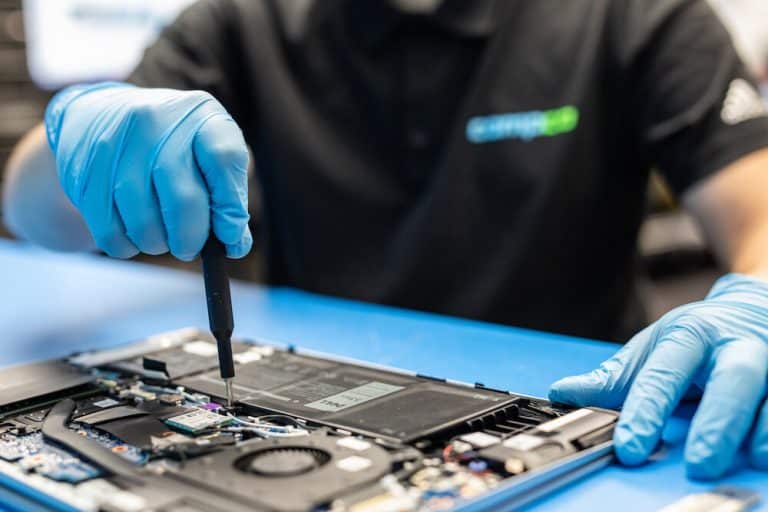Earning Your Gunsmith Certification: Credentials That Matter In 2025
The need for qualified gunsmiths is greater than ever in the quickly changing firearms industry. Whether you are interested in repairing, customizing, or building firearms, earning your gunsmith certification is essential for establishing your credibility and expertise. As we move into 2025, the importance of proper training and certifications cannot be overstated. With the rise of firearm enthusiasts and hunters seeking professional services, a certified gunsmith has a distinct advantage in the market. But how do you get started? What is required to earn your gunsmith certification, and how does it tie into the broader firearms industry? Let’s explore the key elements of earning a gunsmith certification.
Coursework: Building A Strong Foundation
The first step to becoming a certified gunsmith is to gain comprehensive knowledge of firearms, their components, and the various tools used in the profession. Coursework is the cornerstone of your gunsmithing education and provides the foundational understanding necessary to handle firearms safely and effectively. Learn more about the step-by-step gunsmith certification process and start your path to a lucrative job in 2025.
In most accredited programs, you can expect to cover topics such as:
- Firearm Safety: Learning proper handling, storage, and maintenance practices to ensure the safety of yourself and others.
- Mechanical Design And Function: Understanding the internal workings of firearms, including different types of guns, mechanisms, and their functions.
- Tooling And Techniques: Gaining hands-on experience with gunsmithing tools such as drills, lathes, and welding machines, as well as learning various techniques for repair and customization.
- Firearm Modifications: Learning how to customize firearms to meet the specific needs of owners, including stock modifications, barrel work, and performance upgrades.
- Ammunition And Ballistics: Knowledge of different types of ammunition and how to match them with various firearm models for optimal performance.
These courses are typically offered at trade schools, community colleges, and online programs. Some renowned schools offer hands-on training to ensure students are proficient in using specialized tools and techniques.
Exams: Proving Your Knowledge And Skills
Once you complete your coursework, the next crucial step is passing exams that validate your understanding of gunsmithing principles. These exams assess your understanding of the many topics covered in the program and ensure that you can apply what you’ve learned in real-world situations.
There are typically both written and practical components to exams. The written part often tests your understanding of firearms laws, safety protocols, and the technical aspects of gunsmithing. On the other hand, the practical portion evaluates your ability to repair, modify, or build firearms according to professional standards. This step is critical in demonstrating that you are not just knowledgeable but also skilled in the craft of gunsmithing.
Federal Firearms License (FFL) Ties: Legal Considerations
One of the most significant aspects of becoming a gunsmith is understanding the legal requirements tied to firearms and how they relate to your work. For example, in order to lawfully repair, modify, or sell firearms in the United States, gunsmiths must get a Federal Firearms License (FFL). Gunsmiths can lawfully handle firearms and ammunition with the FFL, which is issued by the Bureau of Alcohol, Tobacco, Firearms, and Explosives (ATF).
The FFL application process involves submitting a detailed background check, including fingerprints, personal information, and a thorough review of any criminal history. Once you obtain your FFL, you can legally engage in the activities associated with gunsmithing, including receiving, repairing, and selling firearms. It’s essential to note that if you plan to conduct business on a larger scale, such as selling firearms, you will need to obtain the appropriate type of FFL.
Moreover, with ongoing changes in firearm regulations, staying up-to-date with state and federal laws is vital for any certified gunsmith. Failure to adhere to firearm laws can result in severe penalties, including loss of your FFL and legal prosecution.
Step-By-Step Gunsmith Certification Process
Becoming a certified gunsmith requires more than just enrolling in a program and passing exams. The procedure consists of a number of crucial elements that guarantee you acquire the abilities and legal authorizations required to work in the sector. Here’s a simplified guide to earning your gunsmith certification:
- Complete Gunsmithing Coursework: Start by enrolling in a reputable gunsmithing program where you can learn the technical and mechanical aspects of firearms.
- Pass The Exams: Pass the written and practical tests that assess your knowledge and abilities after finishing the coursework.
- Obtain Your FFL: If you plan to perform work involving firearms transfer or sales, apply for an FFL through the ATF. To get the license, make sure you fulfill all legal requirements.
- Gain Practical Experience: While certifications are essential, hands-on experience is also crucial. Consider an internship or apprenticeship to gain real-world skills.
- Stay Updated On Firearms Laws: Keep yourself informed of any updates in firearm regulations, safety practices, and technology advancements that impact the gunsmithing profession.
Conclusion
Earning your gunsmith certification is a significant achievement that can propel you into a rewarding and highly specialized career. By completing relevant coursework, passing exams, obtaining an FFL, and staying updated on laws, you will be well-equipped to succeed in the firearms industry. Your credentials will be crucial to gaining clients’ trust and enhancing your professional reputation, regardless of your interest in fixing or perfecting firearms. By following the step-by-step process, you’ll be on the path to becoming a certified gunsmith who can confidently handle the demands of this intricate craft.
also read: reporting-discrimination







